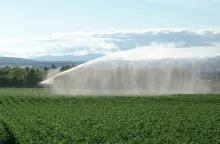Hydrological Extremes, Coasts and Risk Management
CREW Spring 2025 Newsletter
Welcome to our new quarterly CREW newsletter, CREW NEWS!
In this spring edition we’re reminding you of our current calls for proposals, highlighting completed projects and feeding back from our project evaluation forms. As it’s our first edition we’ve also included a refresher on ‘who we are and what we do’ and there’s a letter from our comms officer detailing some favourite moments from her first year in post.
We’d love to hear what you’d be interested in reading in future issues of CREW NEWS.
CRW2023_02: Creating healthy and resilient river systems across Scotland: prioritising research and development gap opportunities for river woodlands.
Type of project: Capacity Building
Aim: The overall aim of this project is to prioritise the research and development (R&D) gap opportunities identified in the Riverwoods evidence review for creating healthy and resilient river systems through improved riparian and floodplain management in Scotland, and identify opportunities to address these gaps to enable investment in new and extended river woodlands, and improved/restored riverscape environments.
Project Status: Project in progress
CRW2024_05 Planning for water scarcity: building resilience and managing water for efficient irrigation
Type of project: Capacity Building Project
Overview: CREW invites proposals for a c. 9-month capacity building project to produce practical guidance for Scottish farmers and growers on how to effectively plan for water scarcity and manage water efficiently for irrigation, to increase resilience to water scarcity.
Budget: Funding available: £88,000 exclusive of VAT (where applicable).
Project Status: Project in procurement.
Water Scarcity in Scotland: Future Impact for Distilleries and Agriculture
Research led by The James Hutton Institute, in collaboration with Scotland’s Rural College, the University of Aberdeen, and the British Geological Survey, highlights the increasing threat of water scarcity in Scotland due to climate change. Recently published in The Geographer (Winter 2024 edition, Adaption: Are we ready? And how far is it possible to adapt?), the study examines the potential impact on agriculture and distilleries.
Scotland’s Flood Resilience Conference Highlights Urgent Need for Action and Innovation
The 2025 Sniffer (now Verture ) Flood Resilience Conference brought together experts, policymakers, and communities at Dynamic Earth in Edinburgh to tackle the pressing challenges of flood resilience.
Sharing Insights on Hydropower and Sediment Management
Great discussions were held this week at a hybrid hydro-sector dissemination event at the Advanced Research Centre (University of Glasgow), where Professor Richard Williams presented findings from the CREW project, “Environmentally effective and cost-efficient sediment management at impoundments.”
The team showcased their insightful project video, available here and also shared an infographic illustrating how river health relies on sediment flow (pictured).
The event also featured:
Increasing flood resilience: residential and community runoff retention solutions
In recent years there has been an increased awareness of the need to address surface water runoff in urban environments. This includes understanding where flood risks may arise, increase, or change in the future due to climate change and increased urban creep, the increased conversion of gardens and other vegetated areas which help to soak up rain. To support resilient surface water management in urban environments, the identification, efficacy, cost effectiveness and prioritisation of implementable flood risk management solutions is essential.
Water Scarcity in Scotland: Future Impact for Distilleries and Agriculture
A recent CREW project led by The James Hutton Institute, in collaboration with Scotland’s Rural College, the University of Aberdeen, and the British Geological Survey, highlighted a pressing issue for Scotland: the increasing likelihood and duration of water scarcity events due to climate change. This project, focused on the impact of these changes on three critical sectors—crop production, livestock farming, and distilleries.




